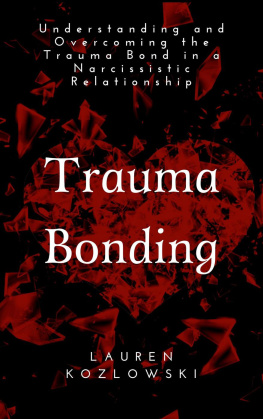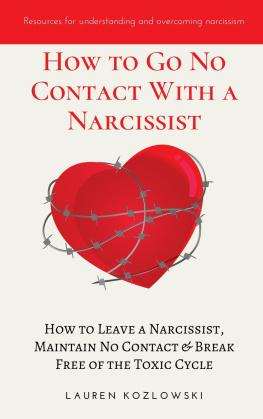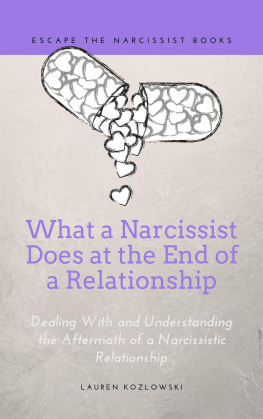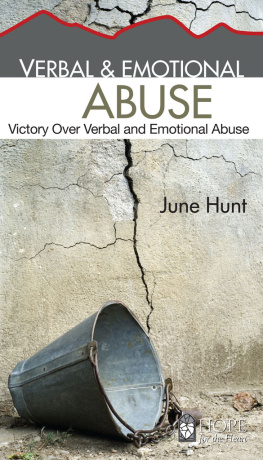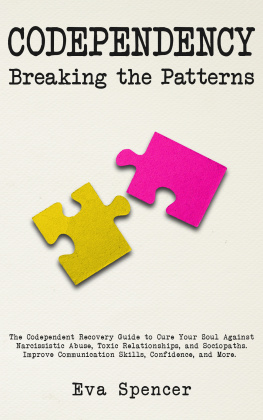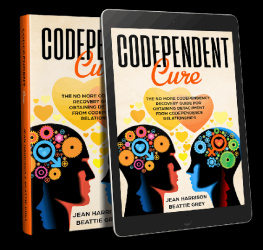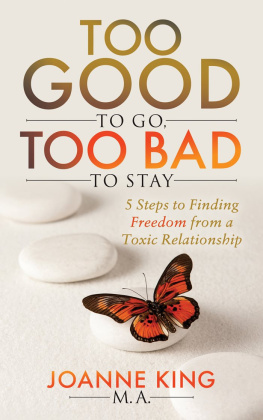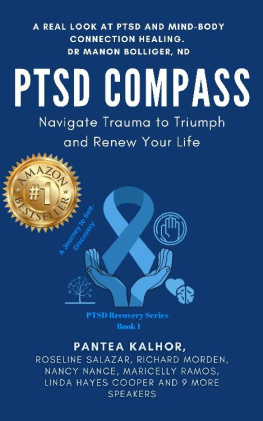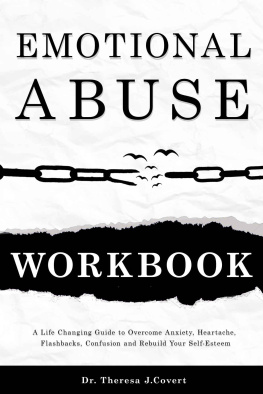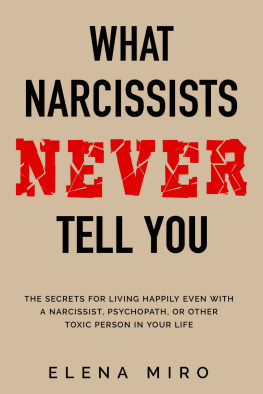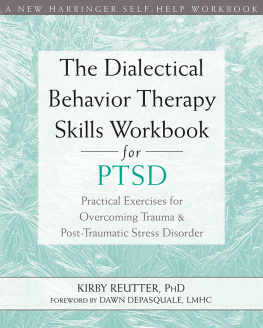Lauren Kozlowski - Trauma Bonding: Understanding and Overcoming the Traumatic Bond in a Narcissistic Relationship
Here you can read online Lauren Kozlowski - Trauma Bonding: Understanding and Overcoming the Traumatic Bond in a Narcissistic Relationship full text of the book (entire story) in english for free. Download pdf and epub, get meaning, cover and reviews about this ebook. year: 2020, publisher: Escape The Narcissist, genre: Religion. Description of the work, (preface) as well as reviews are available. Best literature library LitArk.com created for fans of good reading and offers a wide selection of genres:
Romance novel
Science fiction
Adventure
Detective
Science
History
Home and family
Prose
Art
Politics
Computer
Non-fiction
Religion
Business
Children
Humor
Choose a favorite category and find really read worthwhile books. Enjoy immersion in the world of imagination, feel the emotions of the characters or learn something new for yourself, make an fascinating discovery.
- Book:Trauma Bonding: Understanding and Overcoming the Traumatic Bond in a Narcissistic Relationship
- Author:
- Publisher:Escape The Narcissist
- Genre:
- Year:2020
- Rating:4 / 5
- Favourites:Add to favourites
- Your mark:
Trauma Bonding: Understanding and Overcoming the Traumatic Bond in a Narcissistic Relationship: summary, description and annotation
We offer to read an annotation, description, summary or preface (depends on what the author of the book "Trauma Bonding: Understanding and Overcoming the Traumatic Bond in a Narcissistic Relationship" wrote himself). If you haven't found the necessary information about the book — write in the comments, we will try to find it.
If your relationship is so bad, why dont you just leave them?
If you were in such an abusive relationship, why did you stay with them for so long?
If you knew you were in a relationship with such a toxic person, why didnt you ask people for help?
If youve ever been asked these questions, aside from being ignorant and hurtful, youll know its beyond frustrating. The answer to the above questions, whilst its complex and often confusing, can be given with two words: trauma bonded.
If you find youre in a relationship that you know is so toxic that its crushing your very being, but you cant bring yourself to leave, you may be in the clutches of a tight trauma bond. If youre constantly feeling on edge, forever working to appease your spouse to little avail and like youre constantly being chipped away at with their abusive behavior, then I can understand how emotionally shattering it feels to live this way. If in the same breath, it breaks your heart to even consider leaving them because you cant imagine life without them, then I can understand that feeling too; because I was trauma bonded to my abusive ex.
From my own personal experience and from the experiences other survivors have opened up to me about, this book will cover the following:
- What trauma bonding really is
- The 7 stages that lead to you becoming trauma bonded
- The parallels that Stockholm syndrome has with trauma bonding
- The 5 stages you go through when you come to accept youre trauma bonded
- The cognitive dissonance a trauma bond can cause
- Breaking free from the traumatic bond
This book will also include my own experiences and Ill draw upon those to help you really understand trauma bonding, and let you know that youre not alone in being shackled by this emotionally crippling bond. More importantly, this book will help you understand that the invisible chain that tethers you to your abuser can be broken.
Lauren Kozlowski: author's other books
Who wrote Trauma Bonding: Understanding and Overcoming the Traumatic Bond in a Narcissistic Relationship? Find out the surname, the name of the author of the book and a list of all author's works by series.

